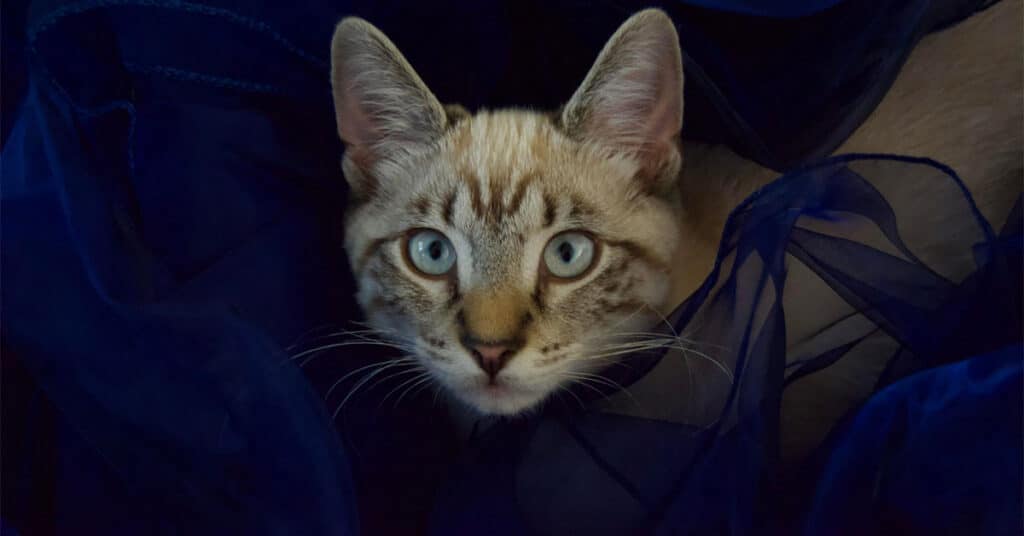Tigger, a domestic cat, died after a snare caught him around the neck. He was found in his family’s neighbour’s garden. But the RSPCA believe he actually died elsewhere.
Tigger’s body was found on 11 April in Netherhall, on the outskirts of Leicester. A snare had pulled tight around his neck. However, Leicestershire Live reported that the RSPCA is now investigating the incident because it believes:
“Tigger did not actually die in the neighbour’s garden in which he was found.”
The news report said Tigger’s family were “devastated” by his death. Zoë Roberts told Leicestershire Live that:
“We have had Tigger since he was eight weeks old and he had his seventh birthday at the end of January. We are all just heartbroken and my three children are devastated at losing him and it has been so hard to explain to them how he died as a result of this and it has brought a deeper level of trauma to us all, as who could be so cruel?”
Protect the Wild contacted Roberts, who confirmed that the snare was a professionally manufactured free-running snare and not a home-made device.
The snare may have come from elsewhere
Snares are metal loops of wire designed to catch wildlife. They are predominantly used by gamekeepers to catch creatures that predate on pheasants and other birds killed by the shooting industry – usually foxes. They are also used by other landowners such as farmers.

However, the devices are indiscriminate and some estimates have said up to 70% of animals that snares catch are so-called ‘non-target species’ such as badgers. Moreover, as several stories covered by Protect the Wild show, there are also intentionally criminal intentions behind some snare use.
This may be true for Tigger. RSPCA inspector Karl Marston told Leicestershire Live that he doesn’t believe Tigger died where he was found. In other words, the snare caught and killed Tigger in one place before somebody later dumped his body in the neighbour’s garden.
Three more cats
The news of Tigger’s death hit the news just a day before the National Anti Snaring Campaign (NASC) reported that a landowner in Yorkshire was convicted of intentionally killing two of her neighbour’s cats.
NASC said that Bradford Magistrates’ Court found June Kershaw of Keighley, West Yorkshire, guilty on 27 April. Kershaw was charged with killing two of her neighbour’s cats, Frankie and Marley, both of whom were found in snares. A third cat, Beebo, was found in the back of a gamekeeper’s van returning from Kershaw’s house. All three killings occurred between 2019 and 2021.
Kershaw’s property is surrounded by a shooting estate that she is said to have a “close association” with.
The court handed Kershaw a £1900 fine plus costs.

We must demand change
Stories like those of Tigger, Frankie, Marley and Beebo expose the cruelty that underlines the shooting industry. Not content with killing pheasants, partridges and other birds, they callously murder beloved family members as well.
Wales and Scotland are on their way to introducing bans on snares. Westminster, however, is dragging its feet. A parliamentary debate in January attended by Protect the Wild showed the government as in the pocket of the shooting industry, as MPs Nick Fletcher and Jim Shannon deflected criticisms of snares with talking points from the industry’s playbook.
There is always the possibility of change, though. And we must demand it if we’re going to create a world that’s not only safe for wild birds but for cats, badgers, and other animals too.
Featured image via Zoe Roberts


